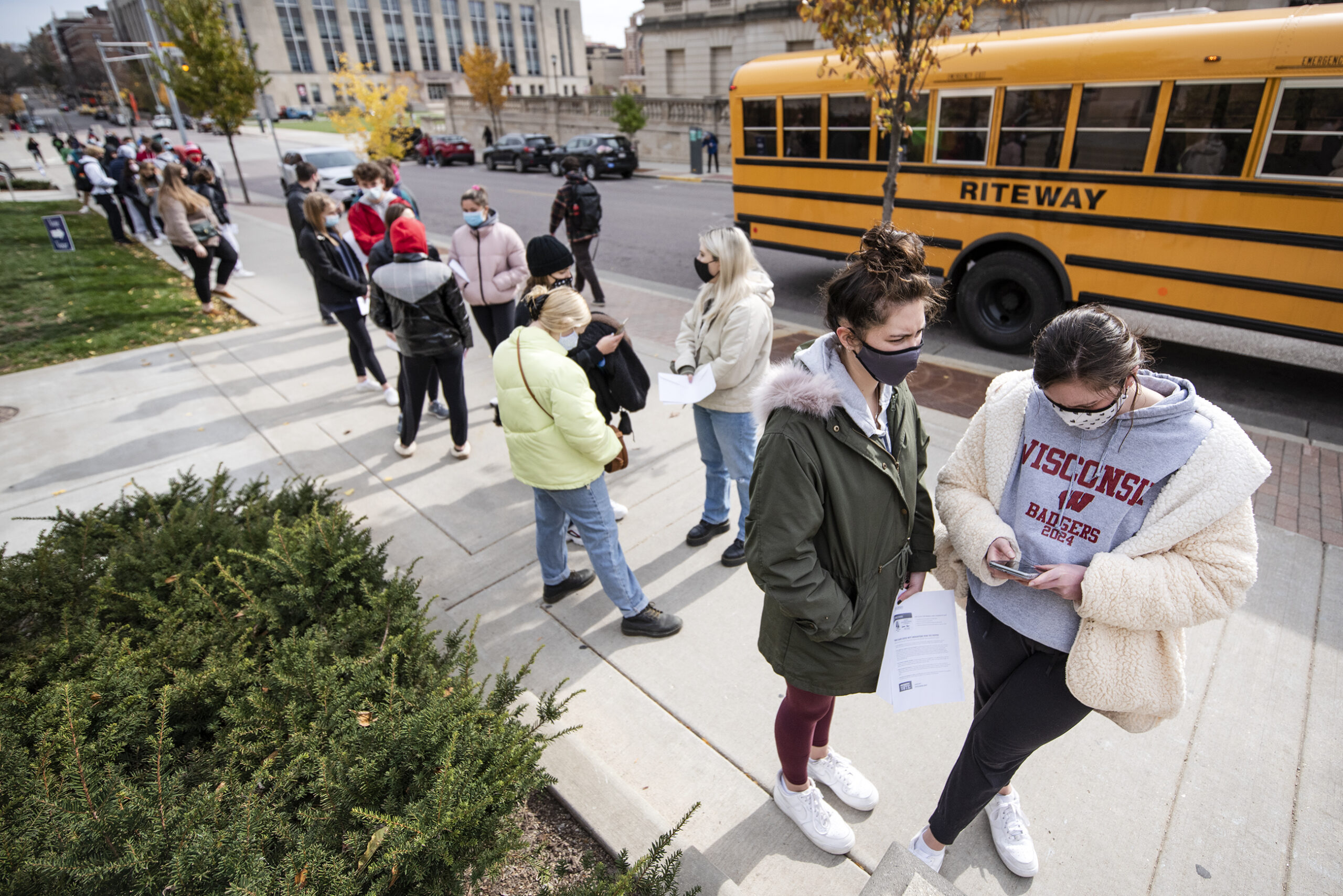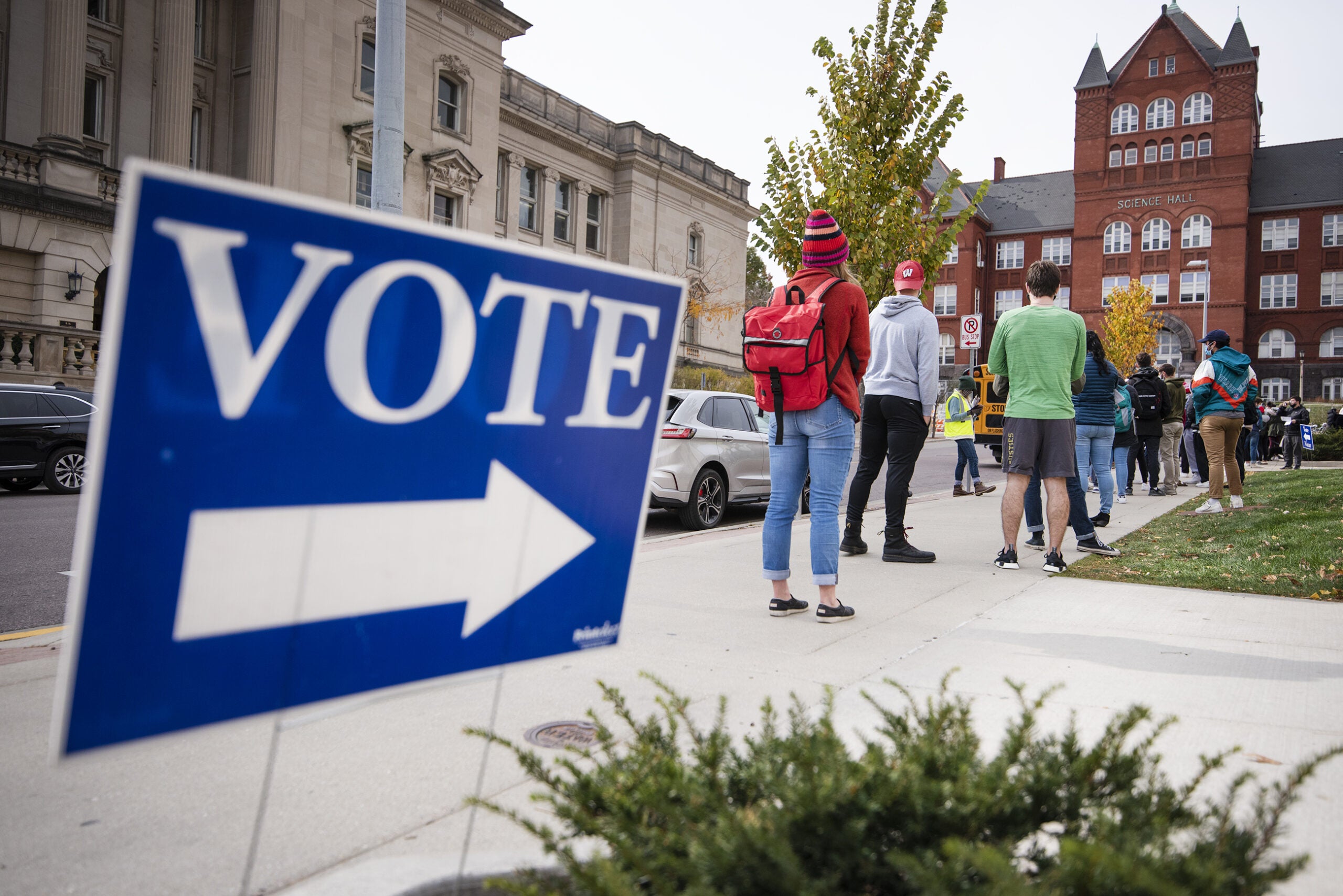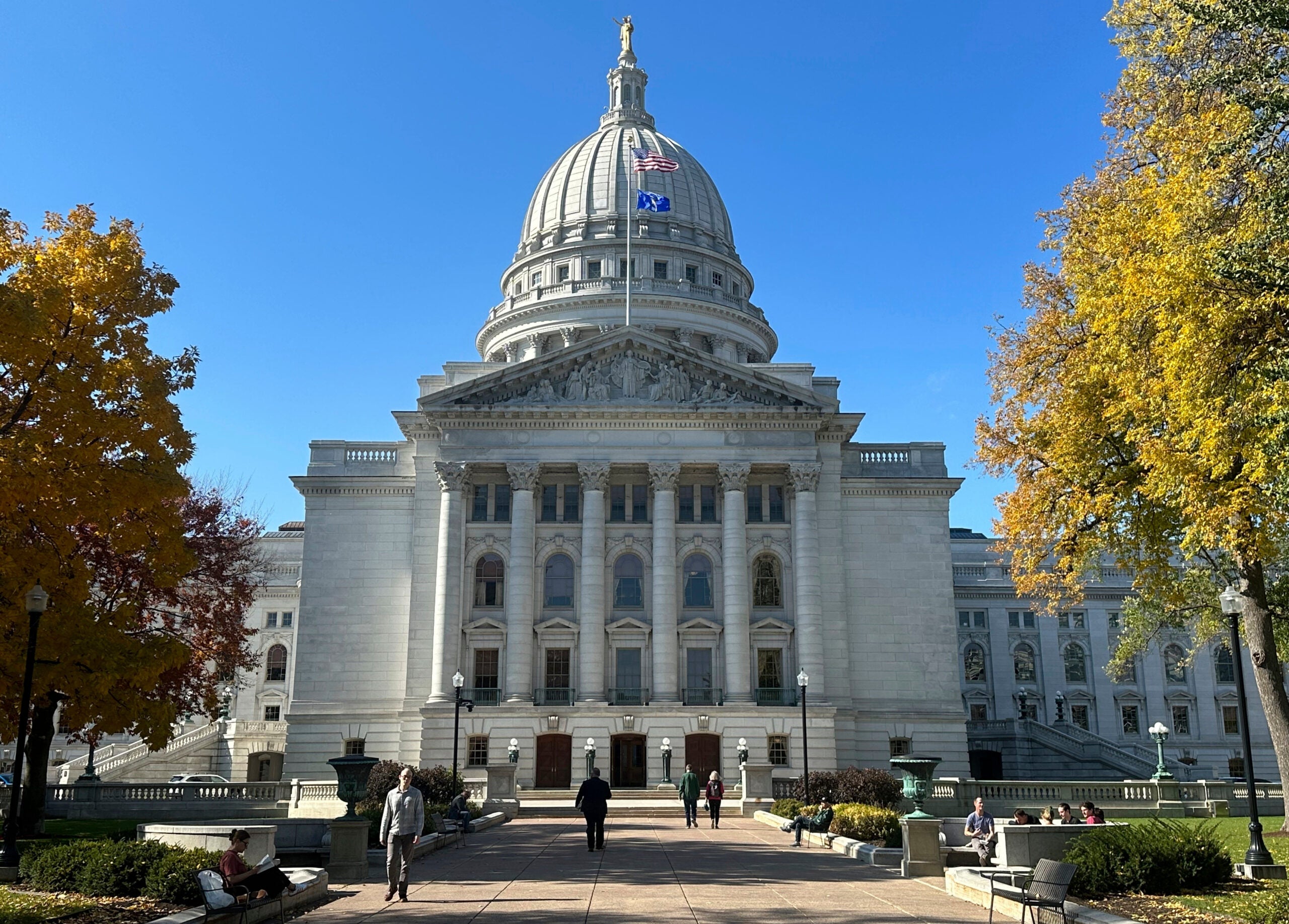The Universities of Wisconsin would be required to provide all first-year students with information on how to vote absentee in their home states under a bill introduced by GOP lawmakers.
Republicans who support the proposal say it would give non-resident students more information and options. But critics say it’s an effort to turn away likely Democratic votes in a swing state that led the nation in youth voter turnout in the 2022 midterm elections.
Under the bill, UW campuses would also be required to provide students with applications for absentee ballots in other states. Students would still have the choice to vote where they attend classes or at their permanent residence.
News with a little more humanity
WPR’s “Wisconsin Today” newsletter keeps you connected to the state you love without feeling overwhelmed. No paywall. No agenda. No corporate filter.
“It just allows them the information to learn how to vote absentee and back home, if at all possible, where maybe they grew up, and they know the issues better and they know the community better,” said Rep. Clint Moses, R-Menomonie, a sponsor of the legislation.
Such a move would be closely scrutinized in Wisconsin, where the 2020 presidential election was decided by just over 20,000 votes — a margin small enough that student turnout could have been decisive.
Last year’s Supreme Court race also saw high turnout among young voters, with long lines at campus polling locations.
Both races saw high Democratic turnout in Dane County, home of the UW-Madison.

Moses said he is not concerned about out-of-state students deciding close elections for statewide offices or the presidency. He said his focus is on local races for school boards or referendums that could raise property taxes.
“Why should a student be voting on these when they are not gonna have any of the impact of it? They’re not paying any of the property taxes in our area,” Moses said.
Sen. Mark Spreitzer, D-Beloit, who opposes the bill, said there are communities where the majority of voters are renters.
“There’s no property ownership requirement to be a voter,” Spreitzer said. “And we certainly shouldn’t pretend that there is one for college students.”
Spreitzer said he did not grow up in Beloit, which he now represents. He said he registered to vote and became politically active in the area while in college.
He said he also wants students to choose to live in Wisconsin after graduation.
“We are constantly talking about workforce challenges and we know that the only way to solve that is gonna be to bring people into our state,” he said. “And bringing them here for college and then spending those four years convincing them that Wisconsin is where they wanna spend their rest of their lives is one of the ways that we can do that.”
GOP plan could create a ‘substantial administrative burden’
UW-Madison Political Science Professor Barry Burden said universities could have a difficult time figuring out how to provide forms and accurate information for elections across the country.
“It’s gonna be a pretty substantial administrative burden for universities to keep track of all 50 states where students might come from and give them customized information about those locations,” Burden said.
He pointed out that the bill currently makes no mention of the District of Columbia or U.S. territories, where students could also have a right to vote absentee.
The UW-Madison has a website where students can find information about how to vote. It includes information for out-of-state students on how to register in Madison or vote in their home state.
“If the goal was simply to educate students about their voting rights, then it would present to them the whole set of options about how they could vote both in state or out of state,” Burden said of the bill. “But this is really drawing their attention to the options to vote out of state.”
Wisconsin Public Radio, © Copyright 2026, Board of Regents of the University of Wisconsin System and Wisconsin Educational Communications Board.







